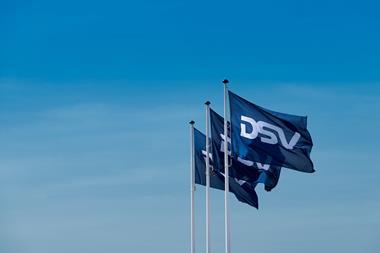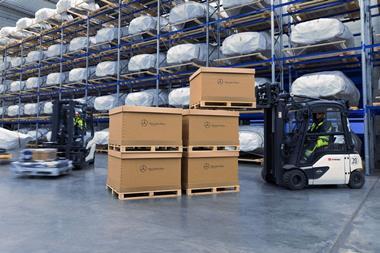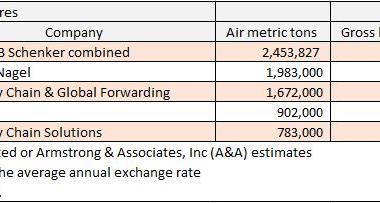Deutsche Bahn has approved the sale of its freight forwarding business DB Schenker to transport and logistics group and fellow forwarder DSV.
Denmark-based DSV confirmed last month that it had agreed to buy Germany headquartered DB Schenker from state-owned railway firm Deutsch Bahn for €14.3bn, but the deal still needed board approval.
The process hasn’t since been made easy with union opposition and a reported attempt by rival bidder CVC to persuade Deutsche Bahn to change its mind with an increased bid.
But today, the supervisory board of Deutsche Bahn approved the sale of DB Schenker at an extraordinary meeting, said Deutsche Bahn in a press release.
The federal government has also granted the approval required for the transaction under the Federal Budget Code (BHO).
The sale will create the world’s largest freight forwarder in terms of both air volumes and revenues and is expected to be completed next year once all regulatory approvals have been obtained.
Including the expected interest income until the close of the sale, the total sales value is up to €14.8bn.
Until the closing of the transaction, DSV and Schenker remain two separate companies.
Deutsche Bahn commented that “DSV has prevailed with clearly the most economically advantageous offer for Deutsche Bahn”.
“The sale of DB Schenker marks an important milestone for DB in its efforts to fully focus on restructuring the rail infrastructure in Germany and providing climate-friendly passenger and freight transport operations in Germany and Europe,” stated Werner Gatzer, chairman of the DB Supervisory Board.
“We have set clear goals to structurally modernise Deutsche Bahn in the areas of infrastructure, operations and profitability and focus on the core business. The proceeds from the sale will significantly reduce DB’s debt and thus make an important contribution to the financial stability of the DB Group. At the same time, DB Schenker will gain a strong strategic owner in DSV,” said Richard Lutz, chief executive of Deutsche Bahn.
Deutsche Bahn announced that DB Schenker was officially up for sale in December 2023 as it looked to reduce debts.
The sale attracted much industry interest and in June this year, Deutsche Bahn narrowed the number of potential bidders to DSV, Maersk, Saudi shipping company Bahri and the private equity consortium led by CVC. However, the following month Maersk and Bahri both withdrew from the race.
Then last month, German trade union Ver.di reportedly backed CVC’s bid over fears of job losses should DSV be successful. And just after the sale deal was announced, CVC is understood to have offered to increase its bid in a last-minute attempt to win DB Schenker 0ver DSV.
Just days ago, railway and transport union EVG reportedly planned to vote against the sale, also due to concerns about job losses, although the union did not hold enough power to stop the deal on its own.
DB Schenker has around 72,700 employees at over 1,850 locations in more than 130 countries. Together, DSV and Schenker will have an expected pro forma revenue of approximately €39.3bn (based on 2023 numbers) and a combined workforce of approximately 147,000 employees in more than 90 countries.
Deutsche Bahn said DSV has planned investments of around €1bn in the coming years.
According to consultant Armstrong and Associates, DSV generated revenues of $22.3bn last year and DB Schenker $22.1bn.
This would give the combined company total revenues of $43.4bn, ahead of DHL Global Forwarding and Supply Chain’s $33.9bn and Kuehne+Nagel’s $31.7bn.
In terms of airfreight volumes, the deal would also create a market leader with volumes (based on 2023 figures) of around 3m tonnes – far above current market leader K+N’s 2m tonnes.
However, some of these volumes would undoubtedly be lost as DSV looks to improve profitability and there is the usual loss of customers that seek to de-risk by spreading volumes amongst forwarders.
Meanwhile, competition authorities may require some sections of the business to be sold as part of the approval.
DSV has completed a number of acquisitions in the last decade that has seen it grow rapidly into a leading player in the market. Recent deals include its takeover of Panalpina, UTi and Agility Global Integrated Logistics (GIL).













